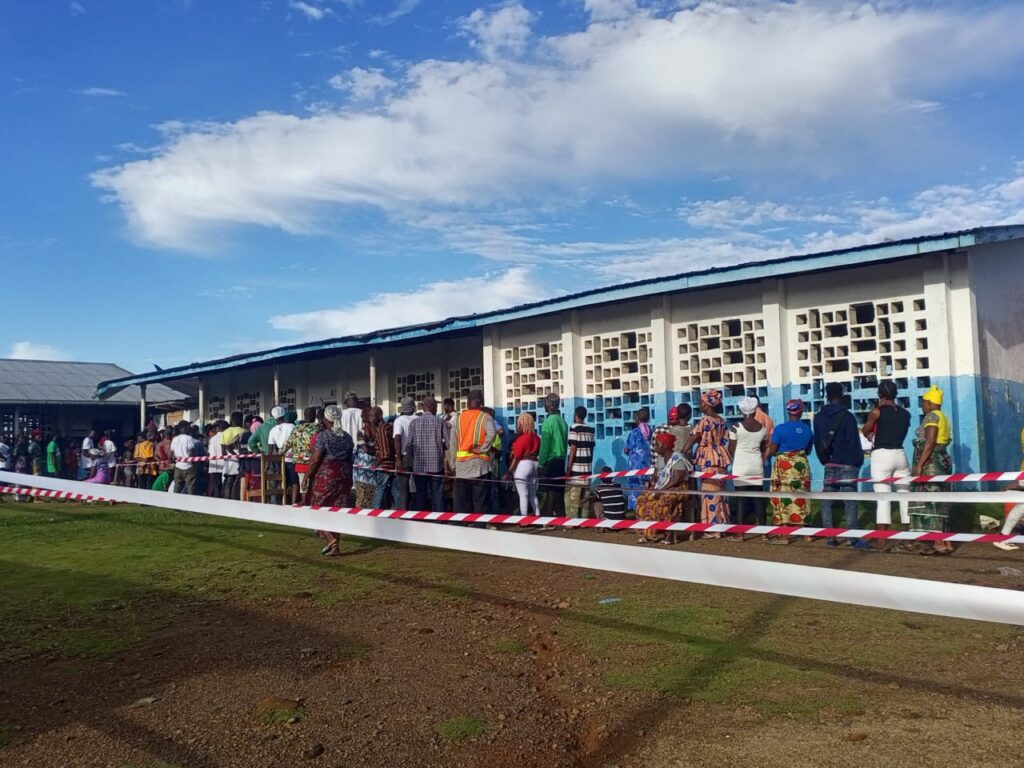Africa’s oldest republic, Liberia is heading to the polls to elect its President, Senators, and House of Representatives come October 10, 2023.
The West African nation has 2,471,617 registered voters who will be expected to cast their ballot across 2,080 voting precincts and 5,890 polling places, according to data from the National Elections Commission, Liberia.
The 1986 Liberian Constitution states that: “every Liberian citizen not less than 18 years of age, shall have the right to be registered as a voter and to vote in public elections”.
The Electoral System of Liberia
The Presidential and House of Representative election is held every six years, but the Senatorial election is held under the Staggered System of elections.
The Constitution of Liberia, states that: “the House of Representatives shall be composed of members elected for a term of six years by the registered voters in each of the legislative constituencies of the counties.”
Meanwhile, a member of the House of Representatives elected in a by-election to fill a vacancy created by death, resignation or otherwise will serve only the remainder of the unexpired term of office.
The House of Representatives of 73 members are elected by plurality vote in single-member constituencies, and the Constitution grants members of the House of Representatives the eligibility for re-election every six years.
The Presidential Election
Under Article 50 of the 1986 constitution of the Republic of Liberia, “the President shall be elected by universal adult suffrage of registered voters in the Republic and shall hold office for a term of six years.”
However, “no person shall serve as President for more than two terms,” the Constitution has declared.
The President is elected by absolute majority vote through a two-round system to serve a 6-year term, the National Election Commission (NEC), Liberia has highlighted.
The Senatorial Election
The Senate has 30 seats in the National Assembly, and members are elected by plurality vote in multi-member constituencies to serve 9-year terms.
Under the staggered system, two Senators are elected from each of the 15 Liberia counties for a 9-year term.
“The senatorial candidates receiving the highest number of votes in each of the 15 counties shall be considered Senior Senators and shall have a term of office of 9 years. The senatorial candidates with the next highest number of votes in each county shall be considered Junior Senators and shall have a term of office of 9 years.”
Liberia Election History
For over a decade (1989 and 2003), Liberia experienced an unstable government after two major civil unrest under the rulership of Samuel Doe and Charles Taylor.
After the resignation of Charles Taylor, the United Nations Mission in Liberia(UNMIL) and the National Transitional Government of Liberia (NTGL) jointly supervised the affairs of the country until a peaceful transition of power to Ellen Johnson Sirleaf as the First Female President of Liberia and Africa as a whole.
Ellen Johnson Sirleaf became President of the Republic of Liberia on January 16, 2006, and was re-elected on October 11, 2011, for a second term.
President George Weah was elected President of Liberia in the 2017 election, defeating the incumbent vice president Joseph Boakai.
This 2023 general election will be the fourth democratic electoral process after the civil war, in a country with a population of 5.3 million.
By: Gifty Tracy Aminu


